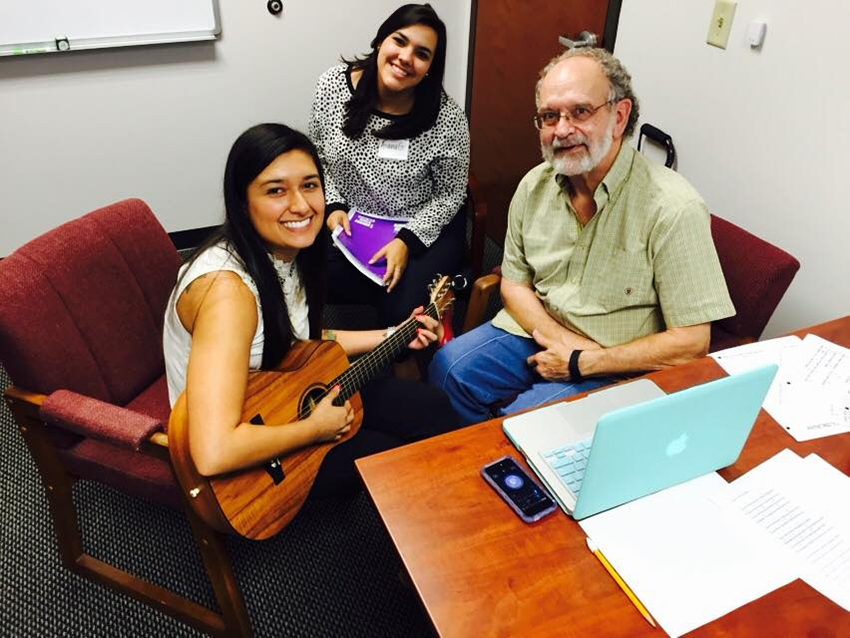When she signed up to be a volunteer at Austin Speech Labs her freshman year, Madison Lee didn’t realize the experience would change her life.
“You go into this field because you like language, you can help other people and it sounds nice,” said Lee, a communications science and disorders sophomore. “But then you actually help people speak, you realize you get to help give them their lives back. Get them back to their jobs, and get back to talking to their families. It’s absolutely the most amazing experience I’ve ever had.”
Through their partnership with the National Student Speech Language and Hearing Association, the Austin Speech Labs employs students of all majors to aid licensed speech pathologists.
Founded in 2008, Austin Speech Labs is a nonprofit that seeks to offer affordable speech therapy. Volunteers serve two to three-hour shifts at a time where they help provide various types of therapy to patients of in the Austin community.
“One of the hours is a one-on-one with a real speech language pathologist that has their master’s degree,” Lee said. “Then they also have a session with a volunteer, usually a computer-based one where we help them with typing skills, reading and being concise when they’re talking to you.”
Students are able to get clinical experience that few other communication and science disorders programs offer because their volunteer-work closely resembles an internship.
“I would say I was pretty positive that I wanted to do speech pathology, but this has really opened my eyes,” said Catherine Xu, communication science and disorders sophomore. “I really like what I do.”
Very quickly volunteers learn that being a speech pathologist is much more than just learning to help others regain their speaking ability. It also encompasses patience
and persistence.
“Recovery processes are different for each patient,” said Matthew Ballard, communications science and disorders junior. “You just gotta be patient and understanding of their situation. They’re gonna get frustrated, you just have to work them through it. Give them a little sympathy and empathy.”
Often volunteers walk away from the experience with a new passion for their future profession and a broader perspective of what it means to be able to communicate.
“Just seeing the tangible difference, a tangible improvement in their lives. They can communicate, they can speak up for themselves and advocate for themselves. It’s so incredibly powerful,” Lee said.





















